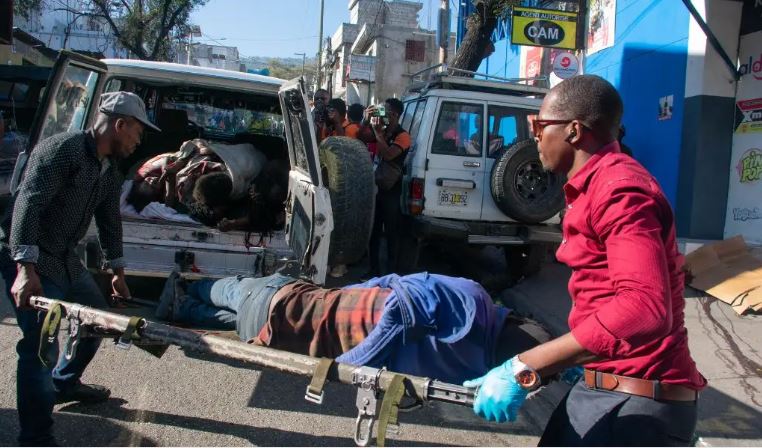Haiti Gang Violence: Over 2,500 Killed or Injured, UN Office Reports Rising Insecurity

April 20, 2024
"The United Nations Integrated Office in Haiti (BINUH) reports a 53% rise in gang violence casualties in the first three months of the year, with over 2,500 killed or injured."
The United Nations Integrated Office in Haiti (BINUH) says more than 2,500 people have been killed or injured due to gang violence in the French-speaking Caribbean Community (Caricom) country during the first three months of this year.
In a statement, the BINUH said that the situation from January through March is a 53 per cent increase from the last three months of 2023.
BINUH said that at least 590 were killed during police operations and at least 141 were killed by vigilante justice groups.
Most of the violence took place in the capital, while at least 438 people were kidnapped across the wider West Department and agricultural Artibonite region.
BINUH said that gang members continued to perpetrate rapes against women and girls in rival neighbourhoods, as well as in prisons and displacement camps.
The UN estimates that hundreds of thousands have been internally displaced by gang violence, which has worsened as the criminal gangs seek to remove the government of Prime Minister Dr Ariel Henry, who came to power in July 2021 following the assassination of President Jovenel Moise at his private residence overlooking the capital.
“Insecurity continues to affect the people of Haiti, especially in the Port-au-Prince Metropolitan Area (ZMPAP), where looting and murders persist. For example, on 18 April, armed groups attacked areas in the Carrefour commune and seized a police station, killing seven people, as reported by the media,” said a report released on Saturday by the United Nations Office for the Coordination of Humanitarian Affairs (OCHA) Haiti in collaboration with humanitarian partners.
In its report, OCHA said logistical constraints, especially with regards to supply, are also causing increasing difficulties in accessing food and other basic goods, resulting in a consequent rise in prices.
According to the World Food Programme (WFP), the price of the food basket in the Port-au-Prince Metropolitan Area (ZMPAP) has increased by 21 per cent since January, while food availability is decreasing and merchants struggle to restock. Merchants in the neighbourhoods of Léogâne, Carrefour and Tabarre are particularly affected by the situation.
The report noted that humanitarians continue to respond amid the volatile context, particularly in terms of supporting the most vulnerable people, such as displaced people.
“For example, the strategy for early detection of cholera and other potentially epidemic diseases is scaling up across the country, especially in the 22 sites for internally displaced people (IDPs) in the Ouest Department, where ZMPAP is located, with support from PAHO/WHO,” the report said.
It added: “In other regions, the number of cholera cases continues to decrease, but the departments of Artibonite and Centre still face numerous epidemic outbreaks.”
It said deportations are ongoing and that earlier this week, the International Organization for Migration (IOM) assisted 52 migrants who had been repatriated from the United States and another 52 from the Turks and Caicos Islands.
SOURCE: CMC


